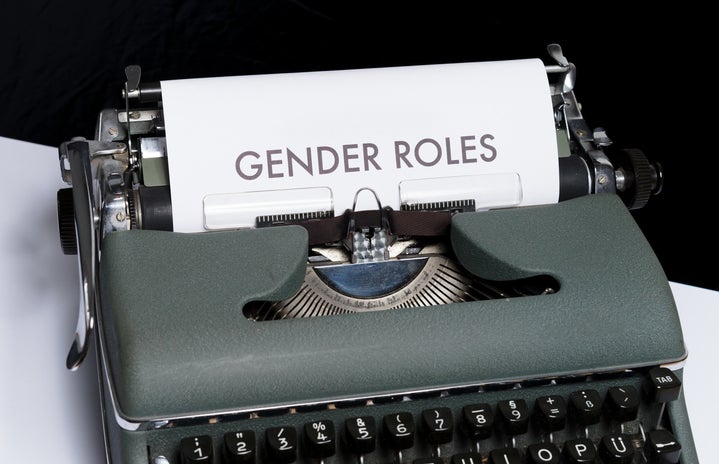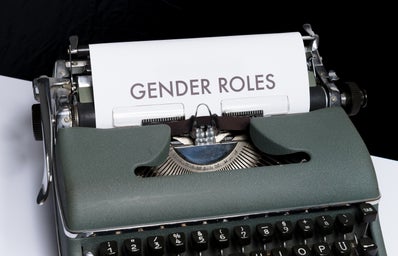Emily Murphy
Growing up, many of us imagined our future selves on our wedding day with a happy family of our own soon to come. Most of us want that beautiful house with a white picket fence, two kids and a significant other to come home to. Is this something that we all truly want? Or is it what we’ve been conditioned to want? This idea of a picture-perfect, all-American family has been embedded into most of our ideals without us noticing. Since the 1950s, the concept of this perfect family with the strong, breadwinning husband and the pure, stay-at-home wife that’s responsible for the family’s emotional needs has been widely enforced throughout the media. We see heterosexual couples with the father who works and isn’t close with his kids and the mother who feeds the household and cares for the children. Women are conditioned to be generous nurturers that rely on men for financial security while men are conditioned to be detached providers and to rely on women for emotional security. These outdated gender roles are incredibly influential in our relationships and it’s our responsibility to acknowledge and unlearn them.
Men have been seen as the breadwinners of heterosexual relationships since the early 1800s. This concept is still reinforced today by the media and within interpersonal relationships, but a lot has changed since it was first presented to the masses. Women are working now, which grants us a certain level of financial freedom and the ability to live alone. Thus, women no longer need to rely on men for economic stability, yet most men are still reliant on women for emotional stability. Take a moment to think about the men in your life: whether it be your boyfriend, your ex-boyfriend, your dad, your friend, your brother, etc. Then, I’d like you to question their ability to be vulnerable without a woman’s guidance or encouragement. When was the last time a man in your life started an emotionally vulnerable conversation? Are most of the men in your life emotionally intelligent? It’s a rather harsh reality check to realize that a lot of the men in our lives are not emotionally mature, but it’s something our loved ones aren’t fully to blame for. The patriarchy negatively affects both men and women. For instance, to be considered traditionally masculine, one must show little to no emotions, unless it’s anger of course. This societal construct of masculinity deprives men of the space and allowance to safely express their emotions, causing them to bottle up these emotions until they are filled with rage. Then, they are permitted to inappropriately express that rage with full acceptance from society. While the patriarchy is to blame for a lot of men’s unhealthy emotional patterns, we are all responsible for ourselves and our actions regardless of the system we are a part of. It is still men’s responsibility to identify and unlearn the ideals society feeds to them that are harmful to themselves and those around them.
Women have a lot to unlearn as well, having been conditioned to be solely nurturers for centuries. Despite women’s current opportunity for financial stability without men, not much has changed regarding women’s roles in relationships. In heterosexual relationships, women still clean, cook and handle childcare much more often than their male counterpart. Women have been raised to be nurturers, happily caring for everyone around them with no complaints, because theyweren’t considered feminine if they didn’t. While it is a beautiful thing to care for those around you, this is a responsibility that all genders should be sharing. Women now have careers just as men have always had yet they are still cooking, cleaning and caring for their children more than their husbands. This is because women are conditioned to feel responsible for their husband’s and children’s emotional needs, putting their own well-being last. Society’s outdated expectations of femininity have a detrimental impact on women’s beliefs regarding their role in relationships. This adverse definition of femininity must be unlearned and redefined before a woman can fully experience personal happiness in a fair-minded relationship.
While we are starting to see more fluidity in these gender roles, they’ve still been embedded into our perspective and subconscious for years. Society needs to recognize the negative effects of them in order to move forward with creating healthy relationships. It is perfectly okay to want that white-picket-fence kind of love, and honestly, most of us still do. However, regardless of the kind of relationships we want for ourselves, redefining these limiting gender roles could open us all up to a whole new level of beautiful and equitable connections between the sexes.


